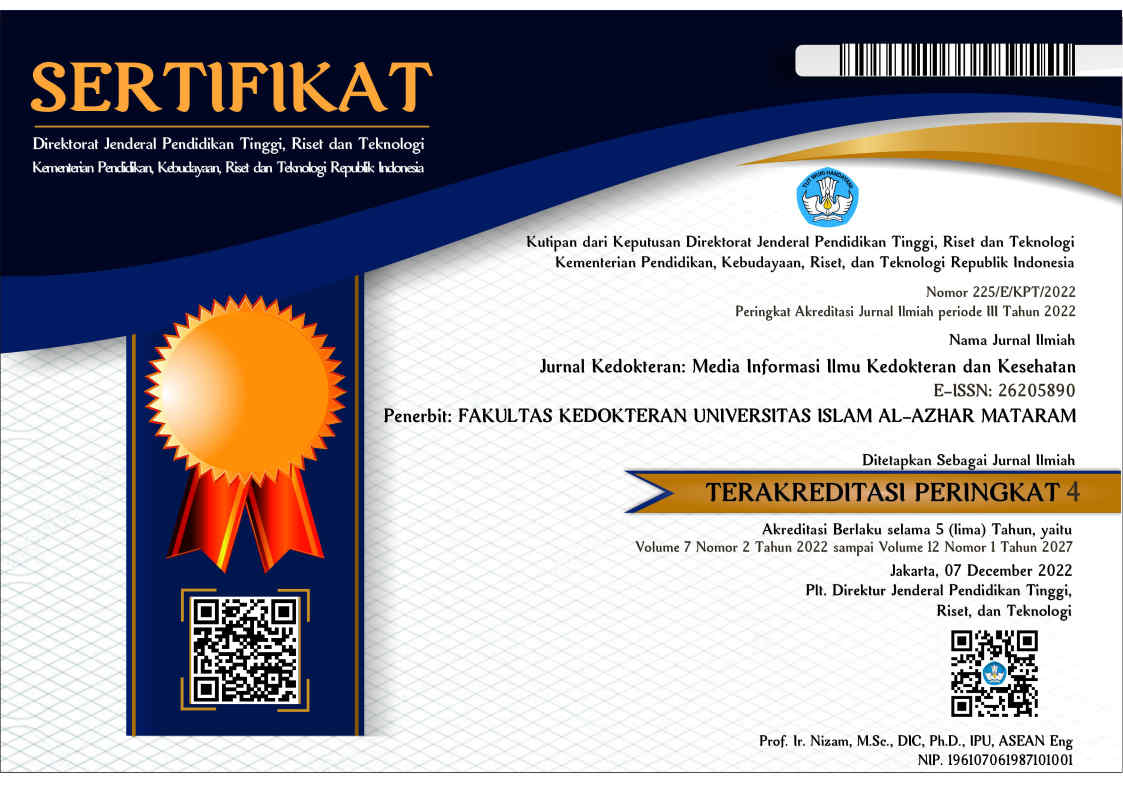Publication Ethics
To maintain the quality of the manuscript and avoid publishing violations/plagiarism in the publishing process, the editorial board determines the ethics of scientific publications. This publication ethics is subject to consider for writers/authors, editors, peer reviewers/reviewers, and journal/editorial managers.
Journal Management Ethics
Decision-making; the manager of the journal or editorial board must describe the mission and goals of the organization, especially those relating to policy and journal publishing decisions without any personal interest.
Independency; Journal managers must give independency to reviewers and editors to create a comfortable working atmosphere and respect the author's privacy.
Guarantees and promotions; journal managers must guarantee and protect intellectual property rights (copyright). In addition, journal managers must publish and promote publications to the public by guaranteeing the benefits of using the manuscript.
Disclosure of conflicts of interest; Journal managers must understand the ethics of scientific publications above to avoid conflicts of interest with other parties, so that the manuscript publishing process runs well
Authors’ Ethics.
Reporting; The authors must provide information about the process and results of his research to the editor honestly, clearly, and thoroughly, and keep their research data.
Originality and plagiarism; the authors must ensure that the manuscript submitted to the editor is the original manuscript, written by him/herself, originating from his own ideas, and not plagiarizing the written work or ideas of others. Authors are strictly prohibited to change the cited reference sources to other people's names.
Redundancy; the authors must inform that the manuscript submitted to the editor is a manuscript that has never been submitted to another journal/publication. If a "redundancy" is found that the manuscript was sent to another publisher, the editor will reject the manuscript immediately.
Authors’ status; the authors must inform the editor that they are competent or qualified in a particular field of expertise in accordance with their field of science. The author who sends the manuscript to the editor is the first author (co-author) so that if a problem is cropped up in the process of publishing the manuscript, it can be resolved immediately.
Manuscript writing errors; The author must immediately inform the editor if errors are found in the writing of the manuscript, both the results of the review and the edits. The writing errors include names, affiliations/institution, quotes, and others that can reduce the meaning and substance of the manuscript. If that happens, the author must immediately propose the manuscript correction.
Conflicts of interest; the author must understand the ethics of scientific publications above to avoid conflicts of interest with other parties, so that the manuscript can be well- processed.
Editor's Ethics
Publication decisions; editors must ensure that the manuscript review process is thorough, transparent, objective, fair and discreet. This becomes the basis for the editor in making a decision on a manuscript, whether it is rejected or accepted. In this case, the editorial board acts as the manuscript selection team.
Publication information; editors must ensure that manuscript writing guidelines for authors and other interested parties can be accessed and readable, both in printed and electronic versions.
Peer-reviewed manuscripts; the editor must ensure that manuscript materials are availabe and he/she must inform terms and conditions as well as process for reviewing the manuscript to the reviewer.
Objectivity and neutrality; editors must be objective, neutral, and honest in editing manuscripts, regardless of gender, business, ethnicity, religion, race, inter-group, and nationality of the authors.
Confidentiality; editors must maintain every information properly, especially those related to the privacy of the author and distribution of the manuscript
Conflicts of interest; the editors must understand the ethics of scientific publications above to avoid conflicts of interest with other parties, so that the manuscript can be well- processed.
Reviewer Ethics
Objectivity and neutrality; reviewers must be honest, objective, unbiased, independent, and only stand for scientific truth. The process of reviewing the manuscript is carried out in a professional manner regardless of gender, business, ethnicity, religion, race, inter-group, and nationality of the authors.
Clarity of reference sources; the reviewer must ensure that the source of the reference/text citation is appropriate and credible (accountable). If errors or irregularities are found in the writing of reference sources/quotes, the reviewer must immediately inform the editor for corrections by the author according to the notes from the reviewer.
Peer-review effectiveness; the reviewer must respond to the manuscripts sent by the editor and work according to the specified peer-review time (maximum 2 weeks). If additional time is needed in reviewing the manuscript, the reviewer must immediately report (confirm) to the editorial secretariate
Conflicts of interest; the reviewers must understand the ethics of scientific publications above to avoid conflicts of interest with other parties, so that the manuscript can be well- processed.
Source : Committee On Publication Ethics (COPE)






